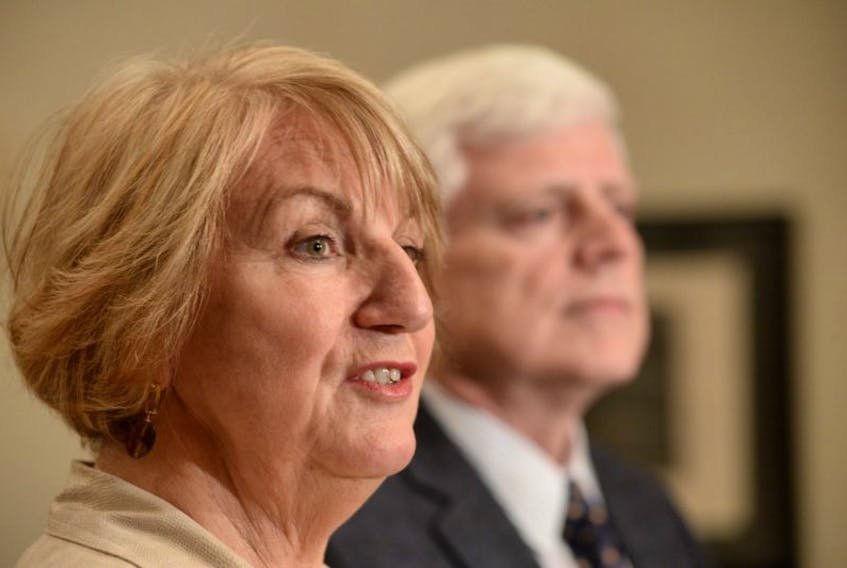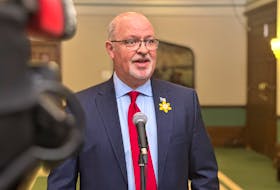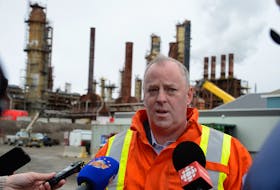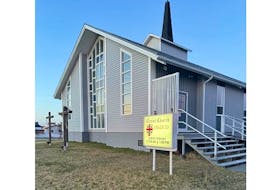The public hearings for the first phase of the Muskrat Falls Inquiry will continue on Monday with testimony from former Nalcor Energy president and CEO Ed Martin. Former premier Kathy Dunderdale will testify the following week, as the last witness currently scheduled.
Both individuals will be asked questions detailing the relationship between Crown corporation Nalcor Energy and the provincial government, in the context of the Muskrat Falls hydroelectric project.
They’re going to be asked about oversight and responsibility.
There have been questions on the subjects this week, for former natural resources minister Jerome Kennedy and former associate deputy minister and then-deputy minister Charles Bown.
Commissioner Richard LeBlanc directly asked Bown on Friday if he had any regrets, given his integral role in the project pre-construction.
“You were the government face, if I can speak to that, not the politicians’ face, but the bureaucrats’ face on this project to a significant extent,” LeBlanc said, with Bown agreeing.
LeBlanc listed things he had heard during questioning, relating to the communication of information, documents and activities.
“For instance, you’ve stated to me you didn’t follow up on Mr. (Jerome) Kennedy’s request for information on cost overrun history for hydroelectric projects. You indicated that the government, through your department, had accepted the recommendation of the JRP (joint review panel for environmental assessment) on the integrated resource management and I’m not sure what was done subsequent to that. You admitted involvement in the ‘shareholder expectations’ letter (for Nalcor) which appears to have gotten lost in your department — I think, to use your terminology. There was the accountability protocol. And you were aware that changes were being made to the MHI report. You were assuming that these changes were being made based upon new information being provided, which you made no inquiry,” LeBlanc said, offering notes.
“And I just want to ask you whether there’s anything you want to say regarding any expression of concern, regret, responsibility to some degree. And I recognize you’re doing the beckoning of the politicians. But for you individually, is there anything you want to say about expressing anything related to your involvement in this particular project? I have no doubt you tried your best. But you know where we are right at the moment (with overruns), we wouldn’t be having this inquiry otherwise, and my own question is: do you regret anything?”
“Commissioner, I’m always one to accept responsibility where responsibility should be accepted,” Bown responded. “And in the case of the particular issues relating to the accountability protocols and the letter of expectations, those are things that were my responsibility at that time. They didn’t advance. And I have to accept responsibility for that, that they didn’t occur in a timely fashion. And I’m prepared to do that.”
LeBlanc asked, “Is there anything else you want to say about this? Generally?”
Bown replied, “No. I don’t think I have anything else I’d like to share. That’s the most important point that I see, that there was a shortcoming and I didn’t follow up on.”
Bown was asked earlier in his testimony, by inquiry co-counsel Barry Learmonth, if the government is ultimately responsible for the actions of Nalcor Energy, whatever the outcome.
Learmonth put forward the idea that individuals within the government, including former elected ministers, were being “passive bystanders” and “not doing very much” in the oversight role.
Dunderdale’s lawyer, Erin Best, grabbed onto the suggestion for cross-examination on Friday and asked Bown if he ever viewed former natural resources minister Jerome Kennedy as a “passive bystander.”
“Hardly,” Bown replied.
He offered a similar no for former premiers Danny Williams and Dunderdale, as Best asked about specific people.
“Do you recall anyone in government ever being instructed to be a passive bystander in regards to Nalcor’s work?” she said, broadening the idea.
“No,” Bown replied.
He agreed the level of involvement of the premier’s office in matters ahead of sanctioning suggested to him a heightened level of oversight.
He was asked by Tom Williams (lawyer for former elected officials, a collection of ministers and premiers, not including Dunderdale) about his experience generally with Kennedy, former finance minister (later premier) Tom Marshall and others, from about 2003 to 2012.
“I always found that the ministers were very engaged with the files and very engaged with the staff,” Bown replied.
When asked specifically about Kennedy, Bown said he was “very engaged” in fact-finding at Natural Resources and even “obsessed” with trying to clearly see if power from Muskrat Falls was needed and a least-cost option.
But the question is if they were asking the right questions at the right times to the right people.
In terms of the Nalcor Energy-provincial government relationship, Bown was asked about Nalcor Energy acting outside of its mandate.
He said the government, cabinet, has tools to address it and should respond, given the oversight role. Best (representing Dunderdale) had him acknowledge an addition of, “when they become aware of it.”
It sets the stage for Martin to speak about whether or not Nalcor Energy stepped outside of its mandate in the process of developing Muskrat Falls.
RELATED STORIES:
The Muskrat Falls Inquiry









